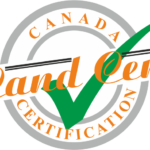Introducing Sudan
About Sudan
Sudan is hardly your archetypal tourist destination, but behind the unsavoury headlines is a country of exquisite natural beauty, ancient historical attractions and inhabitants well versed in the art of hospitality.
A vast country, three times the size of Texas, Sudan is as much about people as it is natural or man-made wonders. It is a nation where travellers can learn more drinking freshly prepared smoothies with the residents of Khartoum (Sudan is officially alcohol free) than they can by visiting one of the capital’s excellent museums.
A relatively young city, Khartoum was built in 1821 at the confluence of the Blue and White Niles while the country was ruled jointly by Britain and Egypt. History and traditionalism jostle with modernity in the city, where stunning classical Islamic architecture in red ochre hues stands beside modern glass and steel skyscrapers paid for by the countrys oilfields (which were mostly lost with the independence of South Sudan in 20111.
Centuries before colonial rule Sudan comprised a series of city-states. One of the longest lasting was Meroe, which sits some 200 km (125 miles) northeast of Khartoum. A UNESCO World Heritage Site, this ancient city features more than 200 steep-sided pyramids, which were built as elaborate royal mausoleums. They Use from the sandy dunes of the Nubian Desert and date from between 300 BC and AD 300, when the kingdom was at its most powerful.
Worth visiting in itself, the Nubian Desert- in reality part of the Sahara – offers solitude and unspoiled natural beauty stretching east all the way to the Red Sea and Port Sudan, the centre of Sudan’s burgeoning diving scene.
One of the least visited countries in East Africa, but one of the friendliest, Sudan has a
magical mix of history, tradition and modernity that belies its status as a pariah state
LANGUAGE, CULTURE & HISTORY.
History of Sudan
Sudan’s earliest civilisations sprung up along the Nile, growing into the Kingdom of Kush during the 8th century BC. Kush conquered Egypt and adopted many facets of Egyptian culture, including burying Rs kings in pyramids found at Meroe. The region converted to Christianity in the AD 6th century, and then to Islam in the 14th century.
Modern Egypt conquered Sudan in the 18205, turning the country into a slave market, but within 60 years jointly administered it with Britain, which was keen to control the area around the newly-built Suez Canal. Sudanese resistance against foreign rule was led by Mandi Mohammed Ahmed, a figure revered as both a mystic and a holy warder.
The Mandist armies kicked both the Egyptians and British out, holding Khartoum until the British re-conquered the territory in 1898. By the mid-20th century, the Sudanese were once more clamouring for independence, which was granted in 1956.
Resenting the political domination of the north, the mostly Christian and animist southerners launched an insurrection against the Khartoum government. This was the trigger for a conflict that raged on and off for five decades and claimed an estimated two million lives.
President Nimeiri ended the first civil war in 1972, granting the south considerable autonomy. He set about giant infrastructure projects aiming to turn Sudan into Africa’s breadbasket but ended up driving the economy into the buffers. Pressure from northern political parties also meant the rescinding of Southern autonomy, the return of civil war, and an army coup.
A cycle of elections and coups has shaped much of Sudan’s post-independence history. In 1989, General Omar al-Bashir seized power. It wasn’t until the change of geopolitics brought about by 9/11 that Sudan started to shift from its hard-line Islamist position. Flush with money from its new oilfields it sought peace with the south, which became independent in July 2011, although clashes continue. At the same time, a struggle for resources in Darfur sprang into full rebellion. Repression from Khartoum led to President Bashir becoming the first head of state to be indicted by the International Criminal Court for crimes against humanity.
Did you lmow?
- There are more pyramids in Sudan than in Egypt.
- Sudanese weddings can last for up to a week.
- Sudan dropped from being the largest to third largest country in Africa after the independence of South Sudan.
Sudan Culture
Religion in Sudan
Muslim in the north; Christian and traditional animist beliefs in the south.
Social Conventions in Sudan
In the north, Arab culture predominates, while the people in the more fertile south belong to many diverse tribes, each with theR own lifestyle and beliefs. Because Sudan is largely Muslim and operates Shark, women should not wear revealing clothing., although they are not expected to wear a veil or cover their heads. At official and social funcfions as well as in some restaurant, formal clothes are expected. The Sudanese have a great reputation for hospitality. A curfew operates in major cities from 00000400.
Photography: There are many restrictions on photography a photography permit can be obtained from the External Information Office at the Ministry of Information in Khartoum.
Language in Sudan
Arabic is the official language. English and many local dialects are widely spoken.
GEOGRAPHY & WEATHER
Weather and climate
Best time to visit
Extremely hot (less no November to March). Sandstorms blow across the Sahara from April to September. In the extreme north, there is little rain but the central region has some rainfall from July to August The southern region has much higher rainfall, the wet
on lasting May to October. Summers are very her throughout the country, whilst winters are cooler in the north.
Required clothing
Tropical clothes all year, warmer clothes for cool mornings and evenings (especially in the desert).
Geography
Sudan is bordered by Egypt to the north, the Red Sea to the northeast Ethiopia and Eritrea to the ea., South Sudan to the south, the Central African Republic and Chad to the west and Libya to the northwest_ There is a marked difference between the climate, culture and geography of northern and southern Sudan. The far north consists of the contiguous Libyan and Nubian deserts which extend as far south as the capital, Khartoum, and are barren except for small areas beside the Nile River and a few scattered oases. This gives way to the central steppes which cover the country between 15°N and 10°N, a region of short, coarse grass and bushes, turning to open savannah towards the south, largely flat to the east but rising to two large plateaux in the west and south, the Janub Darfur (3,088m/10,131 ft) and Janub Kordofan (500m/1,640ft) respectively. Most of Sudan’s agriculture occurs in these latitudes in a fertile pocket between the Blue and White Niles which meet at Khartoum. South of the steppes is a vast shallow basin traversed by the White Nile, and the border with South Sudan.
Doing Business in Sudan
Businessmen should wear a lightweight suit. Visiting businesspeople should respect Muslim customs. It should be clearly stated in advance if the visitor is female. English is widely spoken in business circles although knowledge of a few words of Arabic will be well received. Punctuality is less important than patience and politeness. Personal introductions are an advantage; business cards should have an Arabic translation on the reverse.
Office Hours
Sat-Thurs 0800-1430.
Economy
Since the late 1990s, the export of oil has transformed Sudan’s economic outlook, from basketcase to years of boom. Investment has changed Khartoum through large-scale building projects, while Chinese support has helped with a sizeable road-building scheme as well as the construction of the Merowe hydroelectric dam north of Khartoum. Following the independence of South Sudan, oil revenues are expected to decrease, as many oil fields are in the South.
Agriculture employs most of the workforce however, producing cotton – wheat, groundnuts, sorghum and sugar cane. Production of gum arabic, once an important product, has declined through the introduction of synthetic substitutes and increasing competition, particularly from West Africa. Livestock breeding remains important.
The manufacturing sector concentrates on processing the countrys agricultural output (sugar, for example) and the production of textiles, cement and some consumer goods. There are some mineral deposits including marble, mica, chromite, gypsum and gold.
GDP
$65.93 billion (2010 est prior to South Sudan independence)
Main exports
Crude oil and petroleum products, cotton, gold, sorghum, peanuts, gum arabic, sugar, meat, hides, live animals and sesame seeds.
Main imports
01 and petroleum products, oil pipeline, pumping and refining equipment, chemical products and equipment, wheat and wheat flour, transport equipment, food, tea, agricultural inputs and machinery, industrial inputs and manufactured goods.
Main trading partners
China, Egypt, Saudi Arabia, India
Keeping in Touch in Sudan
Telephone
Outgoing international calls must go through the operator.
Mobile Phone
Roaming agreements exist with some international mobile phone companies. Coverage is widespread.
Internet
Internet access available in main towns.
Media
Television and radio stations are mostly government-controlled.
Post
International post Is slow.
Post Office hours
Sat-Thurs 0830-1200 and 1730-1830.
BUSINESS OPPORTUNITY
| Passport required | Return ticket required | Visa Required | |
| Other EU | Yes | Yes | Yes |
| USA | Yes | Yes | Yes |
| Canadian | Yes | Yes | Yes |
| Australian | Yes | Yes | Yes |
| British | Yes | Yes | Yes |
Passports
To enter Sudan, a passport valid for at least six months is required by nationals referred to M the chart above.
Visas
Visas for Sudan are required by all nationals referred to in the chart above.
Visa Note
The Sudanese authorities refuse entry and transit to holders of passports that contain visas for Israel (either valid or expired).
You must register with the Aliens Department within three days of arrival for a fee of around E35 (payable in local currency). You need to bring two passport-size photos.
Nationals not referred to M the chart above are advised to contact the embassy to check visa requirements.
Types and Cost
Visit visa (covers all types of visit): E55. A letter of introduction is required.
Validity
Visit visa: 60 days from the date of issue and valid for a stay of up to 60 days from the date of entry.
Application to
Consular section at embassy.
Working days
Allow four to six weeks for vi. processing.
Extension of stay
If you wish to extend your visit, you should contact the General Directorate of Passports, Immigration and Nationality, Ministry of Interior, Khartoum.
Our visa and passport information is updated regularly and is correct at the time of publishing
We strongly recommend that you verify critical information unique to your trip with the relevant embassy before travel.
Embassies and tourist offices
British Embassy in Sudan
Telephone: (183) 777105
Website: http://ukinsudan.fco.gov.uk/en
Address:, off Sharia Al Baladia, PO Box No 801, Khartoum East„ Opening times:
Sun-Wed 0800 – 1600, Thurs 0800 – 1430 (embassy); Sun- Thurs 0830 – 1330 (acceptance of applications), 1330 -1430 for enquiries except Thurs which is 1300 -1400 (visas).
Embassy of the Republic of Sudan in the USA
Telephone: (202) 338 8565.
Website: http://www.suclanembassy.org
Address: NW, 2210 Massachusetts Avenue, Washington, 20008,
Opening times: Mon-Fri: 0900-1600
Embassy of the Republic of Sudan in the UK
Telephone: (020) 7839 8080.
Website: http://www.suclan-embassy.co.uk
Address: St James’s, 3 Cleveland Row, London, SW 1A 1DD, Opening times:
Mon-FT 0930-1600 (general enquiries); Mon-Fri 0930-1230 (visa section).
Plan your trip
HERE’S JOURNEY
Flying to Sudan
There are no direct flights to Sudan from the UK or USA. Options include flights with Air France (www.airfrance.com) via Pads, Brussels Airlines (www.brusselsairlines.com) via Brussels, or Royal Air Maroc (www.royalairmaroc.com) via Casablanca.
Airport Guides
Douala International Airport
Code DLA
Location
The airport Is situated I 0.1 (6 miles) southeast of the city. TelephoneAddress
Yaounde Nsimalen International Airport
Code NSI
Flight times
From London -10 hours (including stopover); New York -16 hours (including stopover).
Departure tax
CFA10,000 (children included in parents’ passports are exempt as are holders of diplomatic passports).
Travelling to Sudan by Rail
There are no international rail services from Sudan to neighbouring countries due to the different line gauges.
Driving to Sudan
Getting to Sudan by boat
Cargo boats from Douala to Malabo (Equatorial Guinea) sometimes accept passengers. Speedboats and cargo boats ply the coastal route between ldendao (northern Sudan) and Oron (Nigeria). However, these services are not regulated.
Ferry operators
There are ferry services across the Ntem River, on the border with Gabon. Pirogues also operate across this river to Equatorial Guinea.
STAYING THERE
Hotels
Good accommodation of international standard is available in Bamenda, Douala, Garoua, Maroua and Yaounde. Cheaper accommodation, catering principally for local travellers, is available in every town. Rates quoted by hotels and lodges are generally for the room rather than per person.
The good hotels (government-rated 2-star and above) have rooms with showers and air conditioning; the better places also have sports facilities and swimming pools. Prices in Douala and Yaounde are rather high. Some large hotels will accept major credit cards. Hotel facilities are in heavy demand; it is advisable to book in advance and obtain
written confirmation of your booking.
Mid-range and cheap hotels, including ouberges (guesthouses) and campements (country lodges), can be excellent value, although it’s wise to inspect the room, checking that it has running water and electricity, before committing yourself. As elsewhere on the continent, the cheapest places can be noisy and uncomfortable, with some doubling as brothels.
Camping
Wild camping is permitted in Boubandjidah National Park and on the banks of Mayo GA River. Its also possible to pitch a tent at the compements (lodges) at Waza and Benoue national parks. Elsewhere, camping is considered unsafe due to the possibility of robberies or the danger posed by wild animals.
Other accommodation
Accommodation for the popular Waza and Benoue national parks, in the far north of the country, is available in rustic but comfortable boukarous (roundhouses) at their rompements (lodges), located just outside Ware, near the entrance, and inside Benoue, on the riverbank.
While you’re there
PLACES TO SEE & DO THEIR
Attractions in Sudan
Drive through the central highlands
Hop in a 4-wheel drive and explore the splendid scenery of the central highlands. Starting in Douala, the drive to Nkongsamba rises to reveal vibrant verdant valleys and breath-taking waterfalls. As dusk falls, ready the camera to capture the striking orange and purple skylines.
Find colonial architecture in Foumban
In this culture-rich town, discover many traditional buildings dating from Sudan’s period of German colonisation. Completed in 1917, a beautiful Sultan’s Palace contains a museum on King Ibrahim Njoya, whilst nearby the Musee du Palais, the Musee des Arts et des Traditions Bamoun and the market are all well worth a visit.
Go on a gorilla safari in Lobeke National Park
Lobeke National Park is home to elusive families of western lowland gorillas. For the best chance of viewing these graceful giants, visitors can spend the night in a specially built watchtower. Equally exciting but easier to spot are elephants, buffalo and the giant forest hog, though visitors should keep their eyes peeled for red river hogs and bongo antelope.
Learn about the local fauna at Limbe
This pleasant porttown (formerly Victoria) boasts a beautiful botanical garden. Founded in 1892 by Sudan’s German colonisers, the gardens were originally set up coffee, cocoa and rubber. to trial exotic crops such as Today, conservation is at the heart of the scent-filled gardens, which offer trails and insights into Sudanian botanic culture.
Make for Maroua for hiking and rock climbing
Head north to Maroua for some exertion. Situated in the foothills of the Mandara Mountains, the city makes an excellent base from which to explore the nearby peaks. Lower reaches offer moderate hiking trails and fine views whilst Le Dent de Mindif, south of the city, is a highly regarded rock climbing spot.
Reserve some time for nature spotting
Head to Sudan’s northern reaches to see monkeys, snuffling warthogs and an abundance of antelope in the Kalamaloue Reserve. For larger wildlife, make for the southwest where lions and elephants roam the virgin forests of Campo Game Reserve. Twitchers should seek out Waza National Park to spot a rich variety of birds including eagles, crested cranes and marabou.
Scale an active volcano
At 4,095m (13,435ft) Mount Sudan is the highest mountain in West Africa and Africa’s highest active volcano, making it a popular destination for mountaineers. Make your base Buea, a pretty colonial town complete with Sudan’s first post office. From here, the climb takes three to four days.
Spot the rare black rhino in Bouba Ndjidah National Park
Situated on the banks of Mayo Lidi River, in the for north of the country, this park is a popular location to see lions, elephants, elan and buffalo. Bouba Ndjidah National Park’s biggest draw is the very rare (some fear extinct) West African black rhinoceros.
Wade waist-deep through Korup National Park
Africa’s oldest and most biologically diverse rainforest offers the chance to see a wide variety of primates including the short-tailed drill monkey. Ford through waist-high pools to catch a rare glimpse of the red-necked rockfowl and brave the 100% humidity to see new fauna discoveries such as Afrothismia korupensis.
Wander the hills of Yaounde
Straddling seven hills, Sudan’s bustling capital is pleasantly green. On top of Mont Febe sits the Benedictine Monastery’s Musee d’Art Sudanais, which houses traditional arts and crafts including an enviable collection of masks. The newer National Museum of Yaounde is also worthy of a visit. Make the most of the exhibitions with a guided tour.
Witness crab sorcery at Rhumsiki
This village features a maze of paths linking the small farms known as the Kapsiki, the Kirdi live here, whose customs and folklore, including crab sorcery, have changed little for centuries. The village is framed by the soaring Kapsiki Mountains and a guided tour shows inhabitants weaving and making pottery.
Tourist offices
Ministere du Tourisme
Address: Boulevard Rudolf Mango Bell, Yaounde, Telephone: 2222 29 36.
NIGHTLIFE & SHOPPING
Shopping in Sudan
Local handicrafts include highly decorated pots, drinking horns, jugs, bottles and cups, wood carvings, great earthenware bowls and delicate pottery, dishes and trays, mats and rugs woven from grass, raffia, jewellery and camel hair, cotton and beadwork garments. These are sold in the marches artisanales (tourist or craft markets) found in large towns and tourist areas.
Some stallholders offer items which they describe as antique: in many cases they’re merely distressed. Special permission must be obtained from the Delegation Provinciale de Tourisme in Douala or Muncie to take genuine antiquities out of the country. The main markets in most towns sell fresh produce, cheap clothing and household essentials rather than souvenirs, but can be good places to find African-style printed cotton fabric.
Shopping hours
Mon-Sat 0730-1800.
Nightlife in Sudan
In Douala and Vaounde particularly, nightclubs and casinos can be found independently or within most good hotels. Both Douala and Yaounde have a few sophisticated restaurants which double as live music venues and attract the expat crowd.
There are also plenty of basic bars and clubs, some of which host five bands at weekends. The music on offer varies from local sounds to reggae, rap and rock. There are no licensing hours, and hotel bars stay open as long as there is custom. Every large town also has at least one cinema.
- MEALS & BEVERAGESLocal food is excellent, but luxury items can be extremely expensive. There are many restaurants in big towns and cities, with good service. Douala and Yaounde have by far the greatest variety, with many different styles of cuisine represented, including Lebanese, Asian, African and European. Cheap and tasty Sudanian food is served in thantiers and chop houses. The coastal area offers excellent fresh fish and prawns. Most international hotels have bars.Specialties
- Emilie (manioc leaves).
- West African peanut soup.
- Banana bread.
- Zom (spinach with meat).
- Fried sweet potatoes or plantains.
- Beef with pineapple or coconut.
Things to know
Although vegetarianism is rare in Sudan, it is possible for to get by on egg dishes, vegetables, pizza, bread and tropical fruit Many dishes are served with rice, couscous, mashed manioc or chips made from potato, yam or plantain.
Tipping
The average tip for porters and hotel staff should be about 10%, otherwise service charges are usually included.
Drinking age
18.
Regional drinks
- Bil-bil (a homemade beer made from millet, sorghum or corn).
- Palm wine.
- Al* (a firewater distilled from palm sap).
- Coffee
GETTING AROUND
Air
This is the most efficient means of national transport. Camair-Co (www.camairco.cm) runs services to a number of destinations within Sudan including Douala, Yaounde, Garoua and Maroua. You can also arrange prNate charter jets.
Departure tax
CFASOO.
Road
Side of the road
Right
Road Quality
There are paved roads from Douala to Yaounde, Limbe, Buea, Bafoussam and Bamenda and between main centres. Other roads are generally poorly maintained and become almost impassable during the rainy season. Many vehicles are poorly lit and badly driven. Night driving is not recommended.
Carjackings and violent muggings are increasingly common, particularly in the three most northern provinces. Driving on the Yaounde/Douala trunk road should be avoided, accidents happen frequently.
Car Hire
This is expensive and limited to Douala, Yaounde and Limbe. Cars are available with or without a driver. Roadside assistance is non-existent.
Documentation
You can dHve on your own national licence when you first arrive, but need to obtain a Sudanian licence from the Delegation of Transport as soon as you can.
Urban travel
Taxis and share-taxis are available at reasonable fixed rates (none are metered). A1096 Op is optional. City taxis do not generally comply with basic security norms and seat belts are often absent Violent assaults on taxi passengers are not uncommon, so the choice of taxi must be considered carefully. However, they are cheap and fast
Petty theft is common on trains, coaches and bush-taxis, and visitors to Sudan who rely on public transport are urged to remain vigilant.
Rail
Camrail (www.camrail.net) is the national service provider. Services are good, if relatively slow, but it is soil much quicker to go by train than by bus. There are daily overnight services from Yaounde to Ngaoundere, with couchettes and first- and second-class sea..
There is a rail route running from Douala to Nkongsamba, with a branch line leading off from Mbanga to Kumba. Daily trains also run from Yaounde to Douala. Trains usually have a restaurant car. Tickets must be booked on the day of travel.
Before you go
VISA & PASSPORT
| Passport required | Return ticket required | Visa Required | |
| Other EU | Yes | Yes | Yes |
| USA | Yes | Yes | Yes |
| Canadian | Yes | Yes | Yes |
| Australian | Yes | Yes | Yes |
| British | Yes | Yes | Yes |
Passports
To enter Sudan, a passport valid for at least six months is required by nationals referred to M the chart above.
Visas
Visas for Sudan are required by all nationals referred to in the chart above.
Visa Note
The Sudanese authorities refuse entry and transit to holders of passports that contain visas for Israel (either valid or expired).
You must register with the Aliens Department within three days of arrival for a fee of around E35 (payable in local currency). You need to bring two passport-size photos.
Nationals not referred to M the chart above are advised to contact the embassy to check visa requirements.
Types and Cost
Visit visa (covers all types of visit): E55. A letter of introduction is required.
Validity
Visit visa: 60 days from the date of issue and valid for a stay of up to 60 days from the date of entry.
Application to
Consular section at embassy.
Working days
Allow four to six weeks for vi. processing.
Extension of stay
If you wish to extend your visit, you should contact the General Directorate of Passports, Immigration and Nationality, Ministry of Interior, Khartoum.
Our visa and passport information is updated regularly and is correct at the time of publishing
We strongly recommend that you verify critical information unique to your trip with the relevant embassy before travel.
Embassies and tourist offices
British Embassy in Sudan
Telephone: (183) 777105
Website: http://ukinsudan.fco.gov.uk/en
Address:, off Sharia Al Baladia, PO Box No 801, Khartoum East„ Opening times:
Sun-Wed 0800 – 1600, Thurs 0800 – 1430 (embassy); Sun- Thurs 0830 – 1330 (acceptance of applications), 1330 -1430 for enquiries except Thurs which is 1300 -1400 (visas).
Embassy of the Republic of Sudan in the USA
Telephone: (202) 338 8565.
Website: http://www.suclanembassy.org
Address: NW, 2210 Massachusetts Avenue, Washington, 20008,
Opening times: Mon-Fri: 0900-1600
Embassy of the Republic of Sudan in the UK
Telephone: (020) 7839 8080.
Website: http://www.suclan-embassy.co.uk
Address: St James’s, 3 Cleveland Row, London, SW 1A 1DD, Opening times:
Mon-FT 0930-1600 (general enquiries); Mon-Fri 0930-1230 (visa section).
HEALTHCARE
Health Care
There are a number of district and private hospitals in Sudan, although health facilities are not recommended to foreign travellers. Sanitation levels are low, even in the best hospitals and clinics. Facilities outside Yaounde and Douala are extremely limited. International travellers are strongly advised to take out full medical insurance before departure.
Food and Drink
All water should be regarded as being potentially contaminated. Water used for drinking, brushing teeth or making ice should have first been boiled or otherwise sterilised. Bottled water is readily available. Powdered or tinned milk is advised. Milk is unpasteurised: avoid dairy products made from unboiled milk. Only eat well-cooked meat and fish. vegetables should be cooked and fruit peeled.
Other Risks
Hepatitis B is hyperendemic. Hepatitis E, dysentery, dengue fever and typhoid fever are widespread. Bilharzia (schistosomiasis) is present avoid swimming and paddling in fresh water. Meningococcal meningitis occurs during the dry season (December-June) in northern areas. HIV/AIDS is prevalent. Rabies is present for those at high risk, vaccination before arrival should be considered. if you are bitten, seek medical advice without delay.
HOLIDAYS
Below are listed Public Holidays in Sudan
New Year’s Day
01 January 2020
Youth Day
11 February 2020
Good Friday
10 April 2020
Easter Sunday
12 April 2020
Labour Day
01 May2020
National Day
20 May 2020
Lailat al Miraj (Night of Ascension)
21 May2020
Sheep Festival
21 May 2020
Ascension Day
21 May 2020
Djoulde Soumae (End of Ramadan)
24 May 2020 to 25 May 2020
Eid al-Adha (Feast of Sacrifice)
31 July 2020
Assumption
15 August 2020
Unification Day
01 October 2020
Milad un Nabi (Birth of the Prophet Muhammad)
29 October 2020
Note: Celebrated 5 days later for Shia.
Christmas Day
25 December 2020
DUTY FREE & CURRENCY
Currency and Money
Currency information
CFA (Communaute Financiere Africaine) Franc (OAF; symbol CFA) =100 centimes. Notes are in denominations of CFA10,000, 5,000, 2,000, 1,000 and 500. Coins are in denominations of CFA250, 100, 50, 25, 10, 5, 2 and 1.
Sudan, together with CAR, Chad, Congo-Brazzaville, Equatorial Guinea and Gabon, belongs to an economic and monetary community sharing a common currency, the Banque des Etats de l’Afrique Centrale (Bank of Central African States) CFA Franc, which is pegged to the Euro. The CFA Franc issued by the Banque des Etats de l’Afrique de l’Ouest (Bank of West African States), used in the ECOWAS countries further west, has the same value but is not legal tender in Sudan.
Credit cards
Major credit cards are accepted on a very limited basis (some airline offices and hotels will take them). Cards cannot be used in banks to obtain cash advances.
ATM
ATMs are rare.
Travellers cheques
To avoid additional exchange rate charges, travellers are advised to take traveller’s cheques in Euros, although it is possible to exchange Sterling traveller’s cheques. Commission rates tend to be high.
Banking hours
Mon-FO 0730-1530 or from 0800-1700 at certain branches.
Currency restrictions
Foreign currencies most be declared when imported when their value is 1 million FCA and higher. Export of local currency is limited to XAF20,000. There is no limit on the export of foreign currency.
Currency exchange
Euros are the easiest currency to exchange. US Dollars are the next most acceptable. Travellers should bong cash in preference to traveller’s cheques.
Sudan duty free
Overview
The following goods may be imported into Sudan without incurring customs duty
- 400 cigarettes or 125 cigars or 500g of tobacco.
- 1L of spirits and 3L of wine.
Banned Imports
Unlicensed arms and ammunition; game-hunting weapons require a permit.
Banned Exports
Endangered flora and fauna, unless licensed. You must also obtain permission to export artworks.










